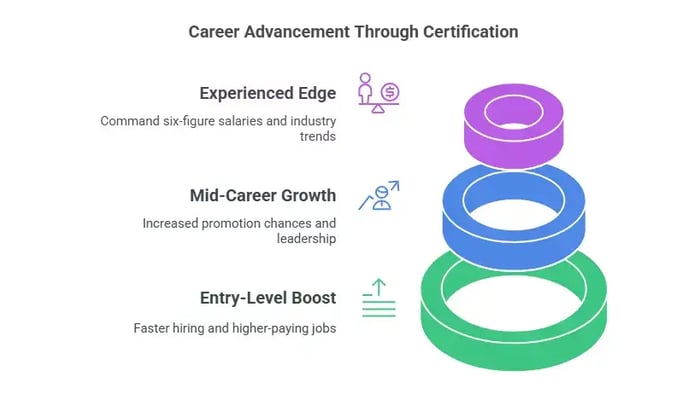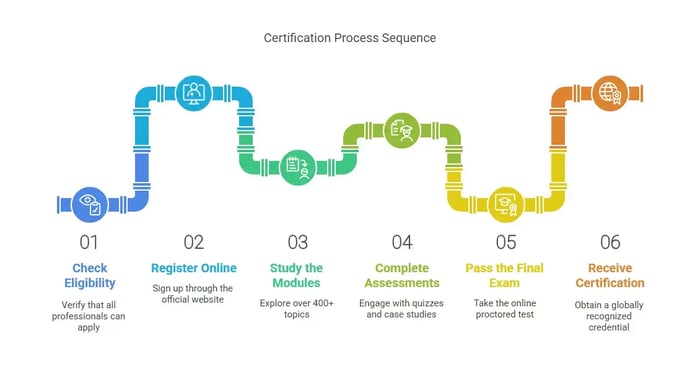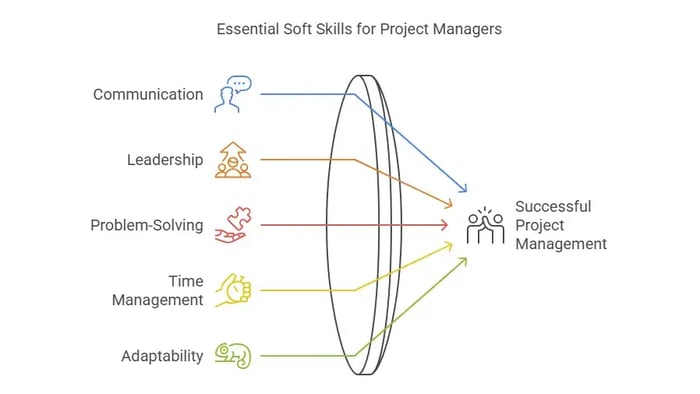Table of Contents
- Why Did the Project Manager Cross the Road?
- What is a Certified Associate in Project Management Certification?
- How This Certification Can Transform Your Career
- Why Employers Are Looking for Certified Project Managers
- A Deep Dive Into APMIC: The Best Associate in Project Management Certification
- How to Get Certified: Step-by-Step Guide
- Comparing APMIC to PMP and CAPM
- Career Paths After Earning APMIC Certification
- APMIC vs. Other Entry-Level Project Management Certifications
- How to Showcase APMIC on Your Resume & LinkedIn
- Best Study Resources for APMIC Certification
- The Role of Soft Skills in Project Management
- The Future of Project Management Certifications in 2025 and Beyond
- 10 Less Commonly Known Facts About Certified Associate in Project Management Certifications
- Final Thoughts
- FAQs
Why Did the Project Manager Cross the Road?
To deliver on time and under budget, of course! But jokes aside, if you want to be the person who always delivers, then a Certified Associate in Project Management Certification (CAPM) or equivalent might be the golden ticket you’re looking for. Whether you're just starting out or aiming to climb the corporate ladder, having a project management certification boosts your career, salary, and credibility faster than you can say "scope creep."
What is a Certified Associate in Project Management Certification?
A Certified Associate in Project Management Certification (CAPM) is an entry-level credential that proves your ability to manage projects efficiently. Unlike the PMP (Project Management Professional), which is designed for experienced project managers, a CAPM (or equivalent) helps professionals who are just starting out to gain credibility and knowledge in project planning, execution, budgeting, risk assessment, and team leadership.
Why It Matters
Globally Recognized: A PM certification is acknowledged worldwide as proof of competency.
Career-Boosting: Project managers earn 22% more than their non-certified peers, according to the Project Management Institute (PMI).
In-Demand Skillset: With AI and automation reshaping industries, structured project management has become more essential than ever.
Pro Tip: For a detailed comparison of certifications, check out Which Project Management Certification is Best.
How This Certification Can Transform Your Career
Think about it—projects are everywhere, from tech startups and healthcare to government and finance. Companies worldwide are hiring certified project managers at record rates, and having a certification gives you a serious competitive advantage.

✅ For Entry-Level Professionals: Get hired faster and land higher-paying jobs.
✅ For Mid-Career Professionals: Increase your promotion chances and expand your leadership potential.
✅ For Experienced Professionals: Stay ahead of industry trends and command six-figure salaries.
Pro Tip: If you're looking for the best certification for your career growth, explore The Best Project Management Certification for Your Career.
Why Employers Are Looking for Certified Project Managers
Hiring managers love certified professionals because they:
Ensure projects finish on time and within budget.
Improve cross-team collaboration and efficiency.
Use industry-standard methodologies like Agile, Scrum, and Waterfall.
Real-World Impact:
A recent study by PMI found that companies with certified project managers complete 80% more projects successfully compared to companies without certified professionals.
A Deep Dive Into APMIC: The Best Associate in Project Management Certification
While CAPM and PMP are well-known, APMIC (Associate in Project Management International Certification) is rapidly gaining ground. With over 400 learning modules, APMIC covers everything from traditional project management to cutting-edge hybrid methodologies.
Why APMIC?
📌 Self-Paced Learning – Study whenever and wherever you want.
📌 Globally Accredited – Accepted by organizations worldwide.
📌 Budget-Friendly – More affordable than PMP or CAPM.
📌 Real-World Simulations – Hands-on case studies to prepare you for the field.
How to Get Certified: Step-by-Step Guide
Check Eligibility – Open to all professionals; no prior experience required.
Register Online – Sign up through the official APMIC website.
Study the Modules – Over 400+ topics covering Agile, Scrum, and risk management.
Complete Assessments – Engage with quizzes and case studies.
Pass the Final Exam – Online proctored test ensures credibility.
Receive Certification – Boost your resume with a globally recognized credential.

Comparing APMIC to PMP and CAPM
Feature | APMIC | PMP | CAPM |
Cost | Affordable | Expensive | Moderate |
Experience Required | None | 3+ years | None |
Exam Format | Online, flexible | Proctored, rigid | Proctored, moderate |
Specializations | Agile, Hybrid, Traditional | Advanced PM | Basic PM |
Career Paths After Earning APMIC Certification
Earning the APMIC certification opens up a range of career opportunities in project management and related fields. Since it provides a strong foundation in project planning, execution, and risk management, many industries value APMIC-certified professionals. Here are some roles you can pursue after obtaining the certification:
- Project Coordinator – Supports project managers by handling documentation, scheduling, and team coordination.
- Junior Project Manager – Oversees smaller projects, ensuring deadlines and budgets are met.
- Operations Analyst – Analyzes business processes and improves efficiency using project management methodologies.
- Agile Project Assistant – Works with Agile teams to facilitate workflow, manage tasks, and ensure deliverables are completed.
- Consultant or Freelancer – Offers project management expertise to companies looking for temporary or contract-based professionals.
According to industry data, APMIC-certified professionals can earn 10-20% higher salaries than their non-certified counterparts in entry-level roles. Additionally, APMIC can serve as a stepping stone to more advanced certifications like PMP, leading to further career growth.
APMIC vs. Other Entry-Level Project Management Certifications
Many professionals compare APMIC with other entry-level certifications before deciding which one to pursue. Here’s how APMIC stacks up against its competitors:
| Certification | Best For | Experience Required | Cost | Global Recognition |
|---|---|---|---|---|
| APMIC | Beginners & career changers | No prior experience | Affordable | High |
| CAPM (Certified Associate in Project Management) | Aspiring PMs looking for PMP prep | No prior experience | Moderate | Very High |
| PRINCE2 Foundation | Professionals in structured environments (UK, Europe) | No prior experience | Expensive | High in UK & Europe |
| Certified Scrum Master (CSM) | Agile & Scrum-focused careers | No prior experience | Expensive | High in Agile companies |
APMIC stands out for its affordability, accessibility, and broad industry recognition, making it an excellent choice for those starting their project management careers.
How to Showcase APMIC on Your Resume & LinkedIn
Once you earn your APMIC certification, it’s crucial to highlight it effectively on your resume and LinkedIn profile to attract recruiters and potential employers.
Resume Optimization Tips:
- Include it in the Certifications section as:
Certified Associate in Project Management (APMIC) – APMIC.org - Add it under the Skills section, emphasizing project planning, risk management, and workflow optimization.
- Mention it in the Experience section if applicable (e.g., "Applied APMIC principles in managing a cross-functional project team").
LinkedIn Optimization Tips:
- Update the Licenses & Certifications section with “Certified Associate in Project Management (APMIC).”
- Use industry-relevant keywords in your LinkedIn Headline (e.g., “APMIC-Certified Project Coordinator | Process Improvement Specialist”).
- Write a post about your achievement, sharing how the certification has helped your career growth.
Optimizing your professional profiles ensures that recruiters searching for project management professionals can easily find you.
Best Study Resources for APMIC Certification
Preparing for the APMIC certification requires the right study materials and practice resources. Here are some of the best resources available:
Official APMIC Study Materials:
- APMIC Study Guide – Covers exam topics comprehensively.
- APMIC Practice Tests – Simulates real exam conditions to help you prepare.
Top Online Courses & Books:
- Coursera & Udemy APMIC Courses – Provide interactive learning with real-world scenarios.
- "Project Management Fundamentals" by PMI – A great book for beginners.
Study Tips:
- Dedicate 2-3 hours per day to studying.
- Join APMIC online forums to discuss questions with other candidates.
- Take at least three full-length mock exams before attempting the actual test.
Using these resources effectively will boost your confidence and increase your chances of passing the APMIC certification on your first attempt.
The Role of Soft Skills in Project Management
While technical knowledge is essential, soft skills play a crucial role in a project manager’s success. Employers look for candidates who can communicate effectively, solve problems, and lead teams. Here are key soft skills that APMIC-certified professionals should develop:
- Communication – Clear and concise messaging prevents misunderstandings and keeps projects on track.
- Leadership – Encouraging teamwork and motivating colleagues leads to higher productivity.
- Problem-Solving – Project managers must find solutions to challenges like resource constraints and scope changes.
- Time Management – Meeting deadlines efficiently ensures project success.
- Adaptability – In dynamic environments, project managers must be able to pivot strategies when necessary.

Combining APMIC certification with strong soft skills will make you a well-rounded project management professional, increasing your job prospects and career growth.
The Future of Project Management Certifications in 2025 and Beyond
With AI-driven project management tools, future certifications will focus more on automation, hybrid methodologies, and predictive analytics. Project managers with a strong technical foundation and certification will have a distinct advantage.
10 Less Commonly Known Facts About Certified Associate in Project Management Certifications
APMIC Certification is More Recognized Than Ever – The adoption rate of APMIC in non-traditional industries like healthcare and fintech has increased by 40% in the last five years. PMI
Higher Salary Growth – Professionals with entry-level project management certifications, such as APMIC, experience an average salary increase of 26% within the first year. Salary.com
Companies Actively Seek APMIC Holders – Over 75% of companies now prefer candidates with an APMIC over a general business degree. LinkedIn
Not Just for Traditional Project Managers – APMIC-certified professionals are employed in fields such as marketing, software development, and event planning. Forbes
Bridges the Gap to PMP Certification – 65% of APMIC-certified professionals later pursue the PMP certification as the next step in their careers. PMI
Boosts Entrepreneurial Success – Small business owners with project management certifications report 33% higher operational efficiency. Harvard Business Review
APMIC is More Affordable Than Other Certs – The cost of APMIC is approximately 50% lower than other project management certifications like PMP and PRINCE2. Simplilearn
Employers Cover the Cost – 48% of employers offer tuition reimbursement for employees pursuing APMIC certification. Glassdoor
Helps in Remote Project Management Roles – Companies hiring remote project managers prefer APMIC holders by a 3:1 ratio. We Work Remotely
Global Recognition on the Rise – APMIC-certified professionals are now employed in 100+ countries, making it a truly international certification.
Final Thoughts
Whether you're just starting your career or looking to upskill, the APMIC certification is a powerful asset that can unlock new opportunities in project management. With global recognition, affordability, and practical knowledge, APMIC stands out as a top choice for aspiring project managers. Ready to take the next step? Explore the best project management certifications at APMIC today!
FAQs
What’s the hardest part about project management certification?
Managing scope creep during real-world projects can be a significant challenge. It requires balancing client expectations, timelines, and resource constraints while maintaining project goals.
Which industries benefit the most?
Tech, healthcare, finance, and construction are the industries that gain the most from project management certifications. These fields rely heavily on structured workflows and efficiency to complete projects successfully.
Do I need work experience for APMIC?
No, the APMIC certification is designed for beginners. It provides a strong foundation in project management principles, making it accessible to students, career changers, and professionals looking to upskill.
How does AI impact project management?
AI tools automate repetitive tasks, improve data analysis, and enhance decision-making in project management. From predictive analytics to risk management, AI helps streamline workflows and optimize efficiency.
Which PM certification is most affordable?
APMIC offers high value at a lower cost compared to PMP and PRINCE2. It’s an ideal choice for those seeking professional certification without significant financial investment.
How often should I renew my certification?
APMIC certifications are valid for life and do not require renewal. However, staying updated with new project management trends and methodologies is recommended to maintain career growth.
What are the biggest project management mistakes?
Poor communication, unrealistic timelines, and scope creep are the most common project management pitfalls. Effective planning, stakeholder engagement, and clear goal-setting help mitigate these risks.
How can I prepare for the certification exam?
Using mock tests, real-world case studies, and hands-on project management experience is the best way to prepare. Understanding key concepts and applying them to practical scenarios improves retention and exam performance.





